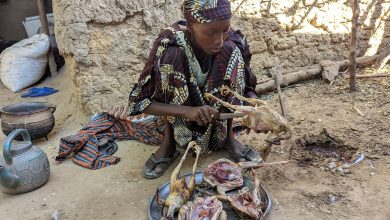Africa Is Facing A Growing Risk Of Zoonotic Diseases – WHO
Zoonotic diseases or zoonoses are diseases or infections naturally transmissible from animals to humans.

The World Health Organisation (WHO) has, in an analysis, said there had been a 63 per cent increase in the number of zoonotic outbreaks in Africa in the decade from 2012 – 2022 compared to 2001 – 2011.
The WHO African region reported that between 2001 and 2022, there were 1,843 public health events, and 30 per cent of these events were zoonotic disease outbreaks.
Zoonotic diseases or zoonoses are diseases or infections naturally transmissible from animals to humans. The monkeypox virus, which originated in animals and then switched species and is currently infecting humans, is an example of a zoonotic disease.
Dr Matshidiso Moeti, WHO Regional Director for Africa, explained that “Infections originating in animals and then jumping to humans have been happening for centuries, but the risk of mass infections and deaths had been relatively limited in Africa”.
“However, with improved transportation in Africa, there is an increased threat of zoonotic pathogens travelling to large urban centres.”
While these numbers have increased over the past two decades, there was a particular spike in 2019 and 2020 when zoonotic pathogens represented around 50 per cent of public health events.
Ebola Virus Disease and other viral hemorrhagic fevers constitute nearly 70 per cent of these outbreaks, with dengue fever, anthrax, plague, including monkeypox, and a range of other diseases making up the remaining 30 per cent.
Dr Moeti added, “We must act now to contain zoonotic diseases before they can cause widespread infections. We must stop Africa from becoming a hotspot for emerging infectious diseases.”
He said that more research is also needed to identify environmental, socioeconomic, and cultural factors that boost the emergence and transmission of epidemic-prone diseases, as well as to better understand the factors that affect the impact and spread of epidemics, including the immune status, nutrition, genetic and antimicrobial resistance.
On Wednesday, June 22, the World Health Network (WHN), a global collaboration of scientific and citizen teams, released a statement describing the current monkeypox outbreak as a pandemic.
The network warned that millions of people would die, and many more would become blind and disabled if immediate and effective actions were not taken.
Support Our Journalism
There are millions of ordinary people affected by conflict in Africa whose stories are missing in the mainstream media. HumAngle is determined to tell those challenging and under-reported stories, hoping that the people impacted by these conflicts will find the safety and security they deserve.
To ensure that we continue to provide public service coverage, we have a small favour to ask you. We want you to be part of our journalistic endeavour by contributing a token to us.
Your donation will further promote a robust, free, and independent media.
Donate HereStay Closer To The Stories That Matter




